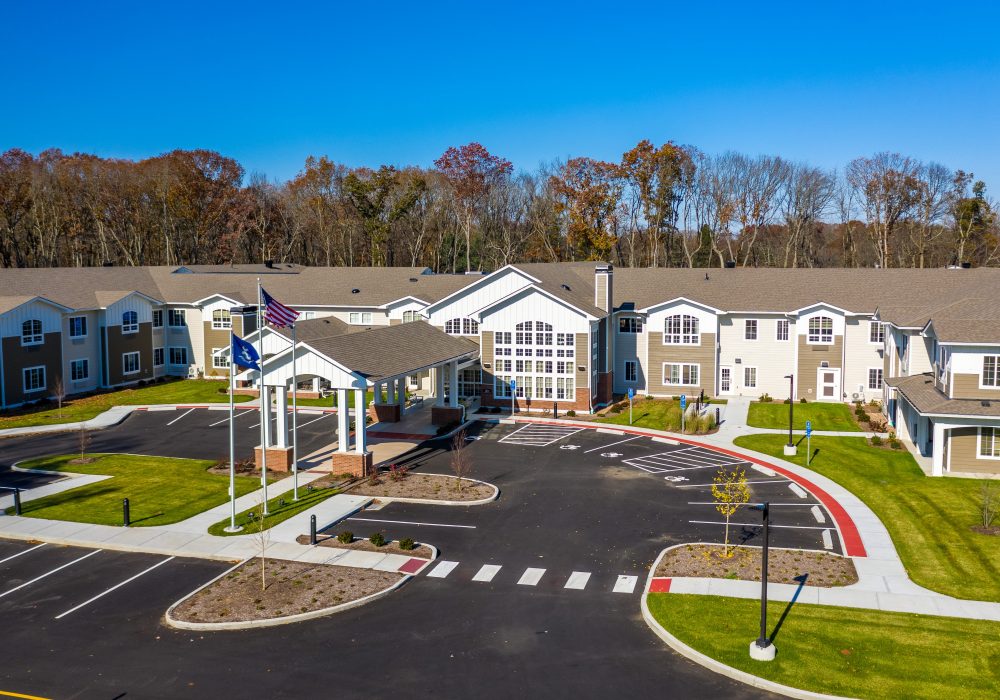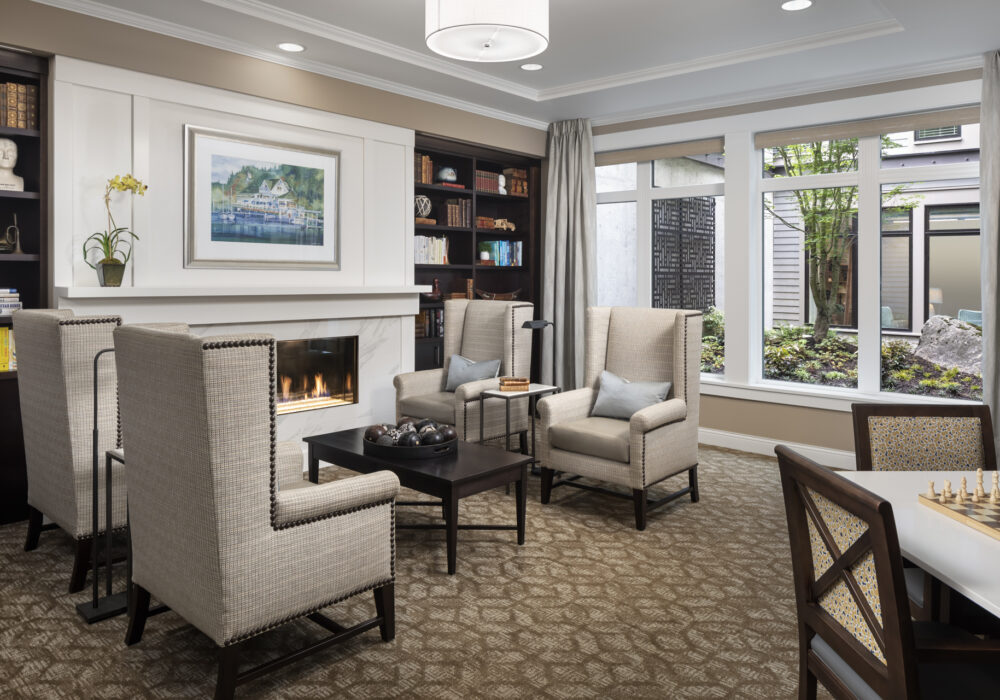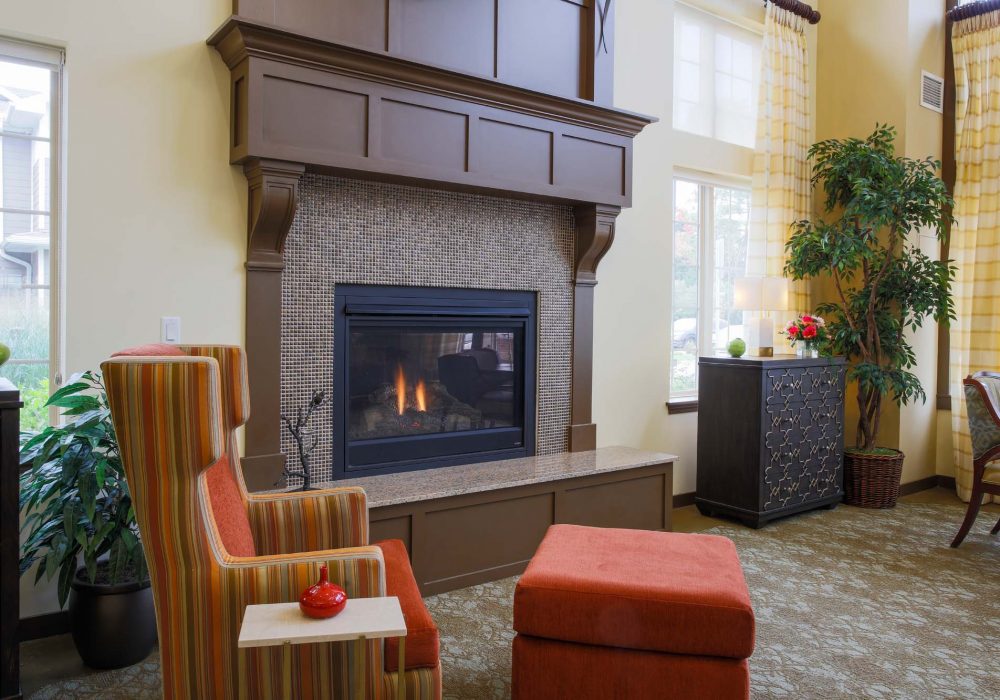
Alzheimer’s disease and other common forms of dementia, including vascular dementia, dementia with Lewy bodies, and frontotemporal dementia, are progressive conditions, with symptoms worsening over time as the disease progresses. Learn more about the stages of dementia and what to expect from your loved one as dementia progresses.
Although the two terms are often used interchangeably, Alzheimer’s disease and dementia are two different terms. Dementia is an umbrella term used to describe several conditions, and it includes Alzheimer’s, as well as other conditions with shared symptoms. More than mere forgetfulness, an individual must have trouble with at least two of the following cognitive areas to be diagnosed with dementia:
- Memory
- Communication and speech
- Focus and concentration
- Reasoning and judgment
- Visual perception (including trouble detecting movement, differentiating colors, or experiencing hallucinations)
The assessment tools used to determine which stage of dementia a person is experiencing are meant to be a guide and a rough outline of what caregivers can expect and when they can expect it. Some symptoms may occur later than others, others may appear in a different order than the scale predicts, and some may not appear at all. Some symptoms may appear and then vanish, while others will continue to worsen over time. Because every person is different and dementia manifests itself uniquely, the speed at which dementia progresses varies widely. On average, a person with Alzheimer’s disease lives 4 to 8 years after a diagnosis, but some have been seen to live as long as 20 years.
Using the GDS to Measure Dementia Progression
As the disease progresses, different signs and symptoms will become increasingly obvious. While there are several scales to measure the progression of dementia, the most common scale is the Global Deterioration Scale for Assessment of Primary Degenerative Dementia (GDS). The scale is also known as the Reisberg Scale. According to the GDS, there are seven different stages of Alzheimer’s disease correlating with four distinct categories: no Alzheimer’s, mild Alzheimer’s (or early-stage), moderate Alzheimer’s (or middle-stage), and severe Alzheimer’s (late-stage).
Experience Leisure Care Memory Care

North Haven Memory Care
Independent Living, Assisted Living, and Memory Care in North Haven, Connecticut
Stages 1 – 3: No Dementia
Stage 1
In Stage 1 of dementia, there are no signs of dementia, the person functions normally, and is mentally healthy. People with no dementia diagnosis are considered stage 1. There are no signs or symptoms, no memory loss, behavioral problems, or anything else associated with the onset of dementia.
Stage 2
From there, the disease progresses into stage 2, also known as very mild cognitive decline. In this stage, there is normal forgetfulness that is often attributed to normal signs of aging. In this stage, caregivers may start to notice some level of forgetfulness, but symptoms of dementia are still not apparent to medical professionals or loved ones. In this early stage, caregiving is about finding a balance between independence and assistance. When in doubt, assume your loved one can accomplish a given task on his or her own unless there is an immediate risk to safety.
Stage 3
The last stage in this category is stage 3, mild cognitive decline. At this stage, loved ones may begin to notice signs of cognitive decline as their loved one experiences increased forgetfulness, decreased performance at work, speech difficulty, and difficulty focusing on everyday tasks. This stage is also known as mild cognitive impairment (MCI) and it is crucial that caregivers recognize the signs of this stage for early diagnosis and intervention.
Symptoms of mild cognitive impairment
- Decreased work performance
- Increased memory loss
- Trouble concentrating, problem-solving, and managing complex tasks
- Driving difficulties
- Verbal repetition
Stage 4: Early-Stage Dementia
Early-stage dementia has only one stage – stage 4, moderate cognitive decline. This stage lasts an average of 2 years and cognitive issues can be detected during a medical interview and exam. People in this stage will have difficulty concentrating, will forget recent events, and will have difficulty managing finances and traveling alone to new locations. Additionally, they may experience difficulty socializing and begin withdrawing from friends and family. In this stage, caregivers should make a concerted effort to actively engage the person with dementia. Caregivers will have a more involved role in this stage and subsequent stages. Caregivers should create a daily care plan and make adjustments to schedules as needed to provide the necessary level of care while also seeking physical and emotional support from other caregivers.
Symptoms of early-stage dementia
- Misplacing items
- Forgetting recent conversations or events
- Struggling to find the right words in a conversation
- Losing track of the day, date, or time
- Loss of interest in other people or activities
- Unwilling to try new things
- Increased feelings of anxiety, irritability, or depression
- Trouble remembering names when meeting new people
- Increased trouble planning or organizing
Stages 5 – 6: Mid-Stage Dementia
Mid-stage dementia is comprised of two stages. Stage 5, moderately severe cognitive decline and stage 6, severe cognitive decline, or middle dementia.
Stage 5
Lasting an average of 4 years, a person in mid-stage dementia now needs assistance to complete activities of daily living. In this stage, the signs and symptoms of dementia will be very easy to identify. Short-term memory will be mostly lost and confusion and forgetfulness will be more pronounced throughout activities of daily living.
Stage 6
In stage 6 of dementia, a person may start forgetting the names of close loved ones and have little memory of recent events. Communication is severely disabled and delusions, compulsions, anxiety, and agitation may occur.
Symptoms of mid-stage dementia
- Problems sleeping and confusing day and night
- Behaving inappropriately in social settings
- Wandering or becoming lost
- Difficulty with perception
- Delusions and/or hallucinations
- Increased aggression and irritability
- Inability to recall personal history, address, and phone number
- Changes in sleep patterns may begin
Stage 7: Late-Stage Dementia
This final category of dementia includes one stage. Stage 7, very severe cognitive decline lasts an average of 2.5 years. A person in this stage usually has no ability to speak or communicate and requires assistance with most activities, including walking. During this stage, caregivers will focus mostly on providing comfort and quality of life. Care options may exceed what you feel you can provide at home since around-the-clock care will be needed.
Symptoms of late-stage dementia
- Difficulty eating and swallowing
- Considerable changes in weight (both loss and gain)
- Incontinence
- Gradual loss of speech
- Restlessness
- Angry outbursts due to confusion
- Increasingly vulnerable to infections, especially pneumonia
Discover Opal Memory Care
Although memory care residents share a common diagnosis, in Opal by Leisure Care, our signature memory care program, understand that each family’s journey is unique, and each resident is an individual to be seen, heard, and celebrated. We strive to meet the physical, social, mental, emotional, and communal needs of our residents in every interaction, ultimately providing well-rounded care that encourages and inspires.Our caregivers possess both the experience in caring for people with memory loss and the right personality to brighten a day. Our team receives extensive and ongoing training for a range of dementia behaviors, ensuring that they’ll take a proactive approach to care and be the best in every moment. The bottom line? They love what they do, and they do it well.
Reach out to one of our memory care communities today and find the support you need now and in the days to come.
Dementia Resources
Find a Leisure Care Community
Better with age, exceptional with us! Come and see how Leisure Care communities are helping seniors rediscover (and sometimes reinvent) themselves.




